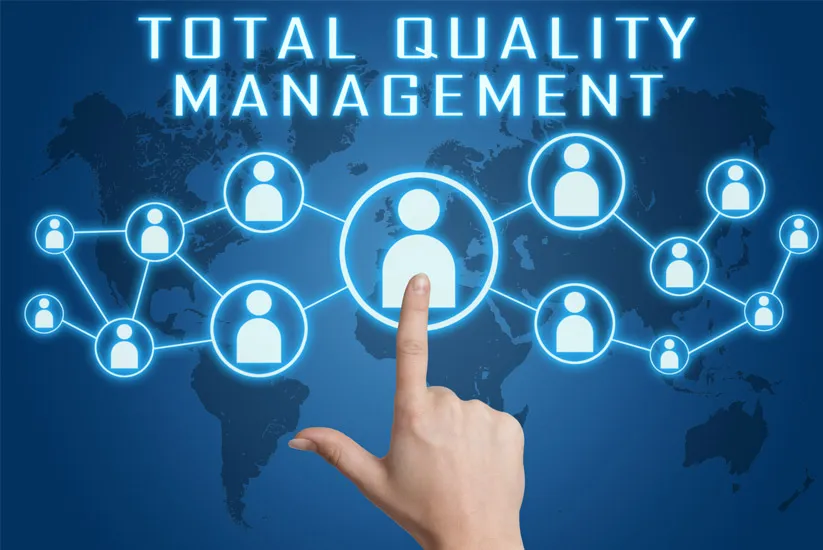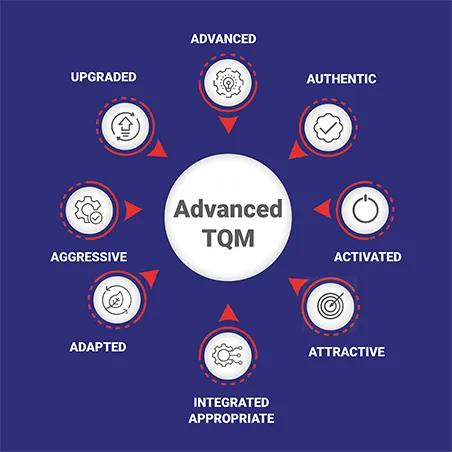
Experts Share Best Practices in Quality Management System Implementation
October 6, 2021
Opening Ceremony – WQM 2021
November 9, 2021Roadblocks to Successful Analytics Initiatives
Data analytics is one of the fundamental pillars of any organization’s digital transformation journey.
In 2021 alone, IDC estimates that global corporations will spend over USD 215.7 billion on business analytic solutions. Data-driven decision-making is today a competitive advantage - it empowers businesses to plan in advance, deliver more personalized services, innovate rapidly, and utilize resources more efficiently. Data analytics is also one of the core elements within Artificial Intelligence and Machine Learning initiatives that are now a mainstream business objective for every successful business irrespective of their domain.
Read: The Different Types of Analytics you Need to Know About
While the importance of data analytics needs no further explanation, there are still several organizations that aren’t fully prepared to embrace it.
They face numerous challenges while implementing analytical initiatives and are often apprehensive of going the extra mile to mitigate them.
Let us examine some of the many challenges that trouble the implementation of analytics initiatives within enterprises and how to mitigate them to ensure that they yield desired results:
Getting a Start
A major issue that hampers analytical initiatives within enterprises is their inability to decide where to begin. If this step doesn’t fall in place, then it has the potential to lead to huge losses and unplanned disruptions. For businesses looking to make their entry into analytics, the first step should be on finding out the business problems they want to solve with analytics. They need to evaluate and prioritize business processes and functions that can achieve significant improvement when driven by analytics based decision making.
Evaluating Present Infrastructure
Once the problems or outcomes needed have been identified, the next step is taking the stock of their existing infrastructure and data workflows. It is important to accurately map all processes, discover dependencies between different departments for data generation, and keep track of other initiatives and external data sources that dynamically alter data generation behavior over time. Enterprises need to have a clear and well-defined roadmap for implementing analytics platforms and not rush into the first option they are impressed with from the market. There is homework to be done internally before selecting a platform.
ROI Expectations
Data analytics initiatives have both short-term and long-term ROI prospects. It is important to have a buy-in from all stakeholders on ROI. Considering the cost of implementing powerful analytics infrastructure and their subsequent complexities, many may have tendencies to question the ROI aspect within a short time. Some improvements like intra-organizational productivity measures can be achieved faster with analytics. However, customer-facing departments or processes may need more time to mature analytical models, capture relevant historic data for processing, improve based on feedback, and ultimately make more accurate analytical predictions. It is important for all business stakeholders to be clear about ROI expectations.
Legacy Technology Architecture
Analytics works well when all business systems within the enterprise can capture and supply relevant operational data which are further processed by algorithms within analytical platforms to derive insights. However, enterprises often have large legacy technology systems still operating within their departments. Such systems often do not have the ability as modern digital systems to enable the collection of data in formats required by analytics solutions. Employees or other factors may oppose the change in the system, and this can hamper the implementation of analytical systems for the whole enterprise in case the data from such legacy systems are important in computing intended results for the analytics initiative. To mitigate this challenge, it is important to modernize your technology stack, bring in replacement or re-develop critical business applications with emphasis on connected and digital-first operational models.
Data Quality
Data is the fundamental building block of analytics but in its raw form, data doesn’t make for a great resource for analytic processing. Businesses need high-quality data to ensure the most accurate analytical results and ROI. Gartner estimates that an organization can suffer nearly USD 15 million in annual costs owing to poor data alone. Before going into an analytics platform, raw data needs to be ensured of integrity and relevant contextual importance. For this to happen, organizations must stress implementing quality initiatives and best practices in data collection. This will eliminate the risk of poor-quality data being fed into analytical systems and prevent them from cascading into mounting losses and inaccurate analytical results.
Data Ownership Conflicts
It is important for enterprises to take into confidence different departments or process units to facilitate the seamless supply of their operational data for analytics. For example, to predict inventory requirements in a retail organization, it is important for the sales team to supply figures, the marketing team to supply lead and shopping trends info for upcoming seasons, the finance team to supply budgetary information, and the logistics team to supply their operational data. Only when all facets of the business are covered, will there be a true picture that comes out through the analytical processing of different datasets. However, in traditional organizations, several departments remain tight-lipped when asked to part with their operational data for fear of losing ownership of critical business data. Business teams and IT teams often fight it out regarding the ownership of the data being managed in the analytics infrastructure. Irrespective of the reason, such a move negatively impacts the analytics initiatives that are being implemented across the organization. To counter this challenge, leaders need to foster a culture of data sharing and encourage transparent enterprise information exchange frameworks. Every employee needs to be aware of the potential impact that an analytical system can bring about and how their individual contribution can help realize the impact faster.
Conclusion
Challenges will always be a part and parcel of any growth trajectory that a business strives to achieve with digital solutions. Analytics is no stranger to this phenomenon. It is important to have a clear understanding of the end-to-end requirements and implementation best practices before starting your business’s analytics journey.
Getting such advisory in house may prove to be quite another challenge as well. This is where our dedicated team of experts can fine-tune the most personalized implementation roadmap and pick the right solutions for your analytical journey. Get in touch with us to know more.





